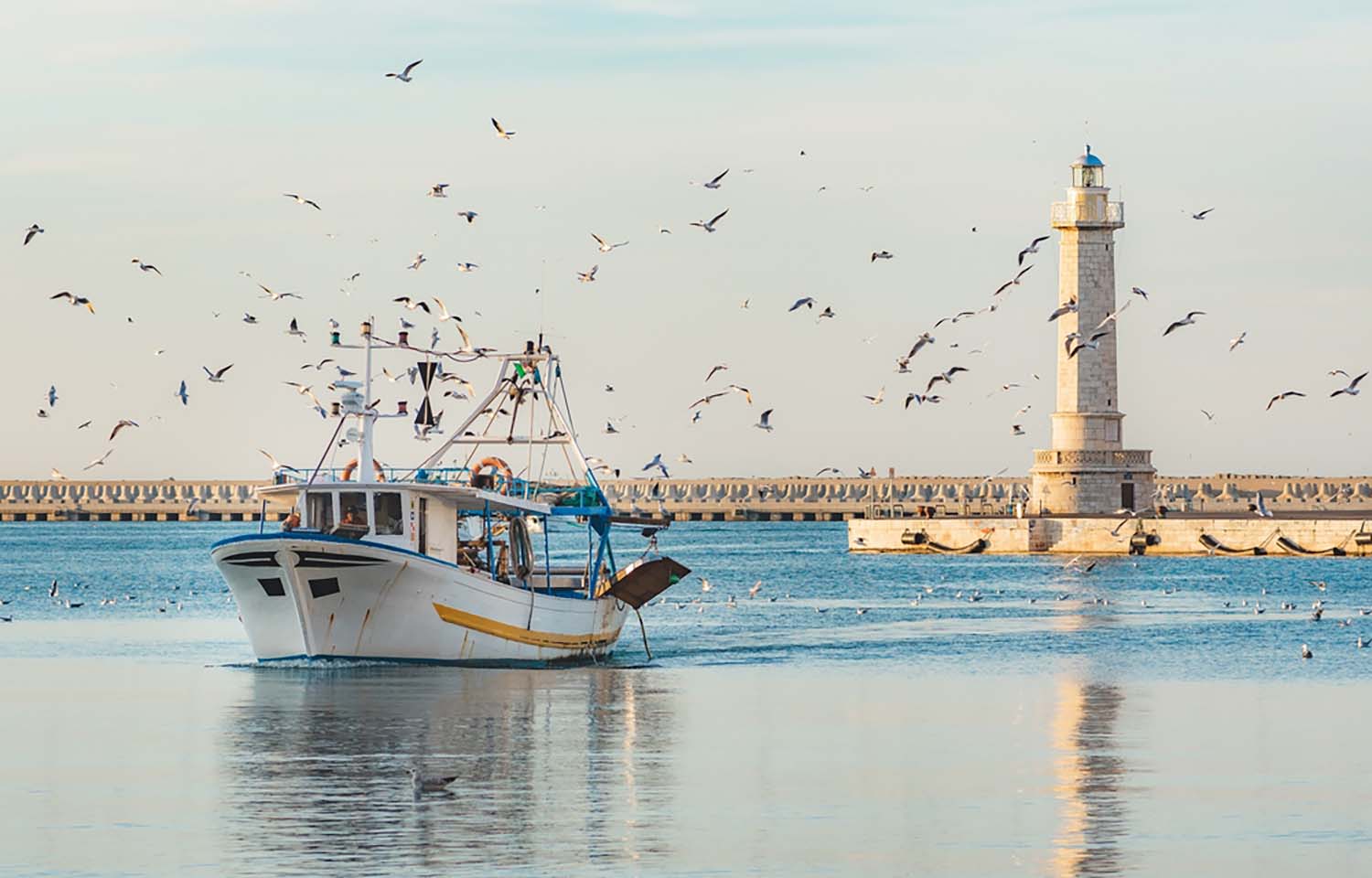Italy and Croatia recently held a summit in Zagreb reaffirming their joint commitment to bilateral relations, at which both sides, among many other items on the agenda, called for the ratification of the exclusive economic zone (EEZ) agreement the countries signed two years ago.
On 24 May 2022, Italy and Croatia signed an agreement delineating the boundary line of the two countries’ EEZs, aiming to permanently regulate the border in line with international law and improve oversight and monitoring in the Adriatic Sea – the northernmost area of the Mediterranean separating the Italian Peninsula from the Balkan Peninsula – which has historically been subject to overfishing.
After the two countries signed the agreement, all European countries that border the Mediterranean Sea have now established, or are in the process of establishing, an EEZ, except for Greece and Turkey.
“By defining this line, Croatia and Italy will reinforce their cooperation in the Adriatic Sea, as well as our common cultural, historical, geopolitical heritage,” Croatian Minister of Foreign and European Affairs Gordan Grlic-Radman said at the time in a Croatian government press release.
Over the last 50 years, one-third of fish populations in the Mediterranean Sea have been lost, primarily due to extensive overfishing, alongside factors like climate change and pollution, according to the Food and Agriculture Organization of the United Nations (FAO).
“Fishing in Croatia is very important. You could fish very well in the 1990s and early 2000s, but then the fish became increasingly scarce,” National Croatian Association Head Romeo Mikičić said in a 2022 press release. “We had to import fish to increase supplies in the area, especially in the summer months during the tourist season.”
Recognizing the dire situation, the General Fisheries Commission for the Mediterranean (GFCM) and the Food and Agriculture Organization (FAO) have, for the past 15 years, assisted countries with sustainable fisheries and aquaculture practices around the Mediterranean, resulting in a 2017 bilateral agreement between Croatia and Italy that protected hake and langoustine through a fisheries restricted area (FRA) called the Jabuka/Pomo Pit.
“The Jabuka/Pomo FRA has been promoted as an example of best practice in fisheries management and an example that needs to be followed in all steps, noting that its effectiveness also rests on the fact that all stakeholders supported its proclamation as a joint initiative in the region,” GFCM Fishery Officer and Subregional Coordinator for the Adriatic Sea Marin Mihanović said.
The 1,400-square-kilometer no-take zone serves as a crucial spawning ground for several species, prohibiting bottom trawling and restricting other fishing activities to specific times of the year. Coast guard vessels and fishery inspectors patrol the area, enforce restrictions, and conduct routine checks on trawlers permitted in authorized areas outside the zone.
“What we can see is that protecting a small fraction of the sea triggers knock-on effects in the surrounding area when this measure is implemented in combination with others. It's a win-win situation: Commercial stocks and marine biodiversity recover and fishers benefit from increasingly abundant and valuable catches,” Mihanović said. “Now, after several years of permanent protection, we are observing positive trends and recovery of fish stocks. These positive changes are also reflected on the fishing industry, including small-scale fleets, which are observing increased catches in the surrounding area, not only in quantity but also in catching larger fish, resulting in increased profits.”
In 2020, scientific studies concluded fish populations were recovering faster than expected, and some fishmongers reported fish have gotten bigger. This took collaboration of policymakers, fishers, and other parties, as well as an acceptance of ecosystem approach to fisheries management, according to the FAO.
“Thanks to cooperation and concerted actions, the reaction of management was timely, preventing the collapse of the stocks and fishing fleets, and shortly after, promoting a reversal in these negative trends,” Mihanović said.
The creation of the EEZ will help ensure trends don’t swing back in the opposite direction, Croatian Foreign Ministry State Secretary Andreja Metelko Zgombić said.
“Reaching agreement on the demarcation with Italy can protect our fish stocks and fisheries in the appropriate manner in the Mediterranean, where there were no fishing quotas but area restrictions on fishing exist,” Zgombić said.
To ensure sustainability goals are met with the new EEZ, Italy and Croatia agreed to identify new and effective management measures for shared fish stocks – particularly pelagic and demersal species – aiming to establish joint preventative actions to reduce risk of marine pollution incidents, enhance maritime safety and protection of the marine environment in the Adriatic Sea, and develop ports in both countries to promote shorter shipping times.
They will also evaluate various factors affecting current fishing practices and activities, such as climate change, environmental challenges, and changes in laws governing respective EEZs.








